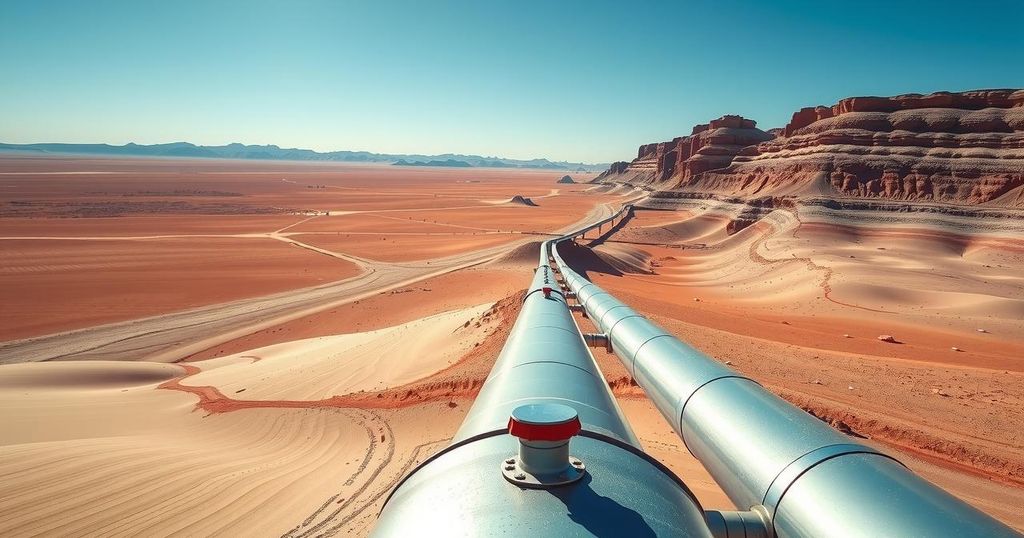Qatar begins supplying natural gas to Syria via Jordan to address electricity shortages, providing 400 megawatts daily to multiple cities. This initiative collaborates with the UN Development Programme, aiming to enhance energy supply and infrastructure recovery after years of civil war.
Qatar has initiated the supply of natural gas to Syria via Jordan, aiming to alleviate the country’s pressing electricity shortages and frequent power disruptions. This initiative was reported by the state news agency QNA and is part of a collaborative agreement with Jordan and the United Nations Development Programme.
Under the terms of the agreement, Qatar will deliver natural gas that will produce 400 megawatts of electricity daily, with plans to gradually enhance output at Syria’s Deir Ali power plant. The generated electricity will be allocated to several cities, including Damascus, Rif Dimashq, and Aleppo, among others.
Fahad Hamad Hassan Al-Sulaiti, the head of the Qatar Fund for Development, emphasized that this initiative is a significant advancement toward fulfilling the energy requirements of the Syrian populace. He noted that it demonstrates a collective commitment to regional collaboration.
Since the ousting of former President Bashar al-Assad in December, Syrian interim authorities have faced challenges in supplying power to residents. The country’s infrastructure has suffered severely from over thirteen years of civil conflict, disrupting energy production and distribution. Previously, Syria relied heavily on oil from Iran for electricity generation, but those supplies ceased after the political transition.
In summary, Qatar’s provision of natural gas to Syria through Jordan is a crucial development aimed at resolving the country’s electricity crises. This partnership represents a strategic collaboration, intending to enhance energy production significantly. Furthermore, it underscores the broader commitment of regional and international entities to assist Syria in overcoming its ongoing challenges caused by years of conflict.
Original Source: www.aljazeera.com




